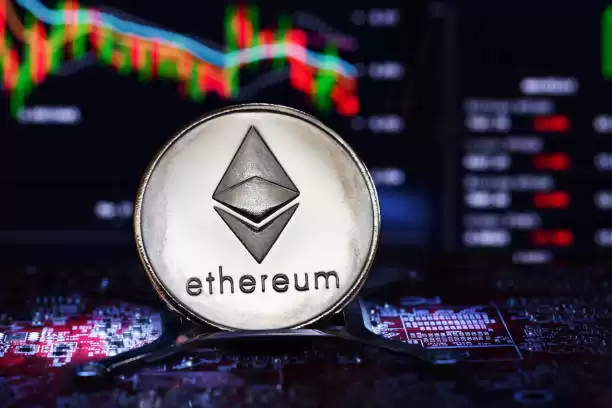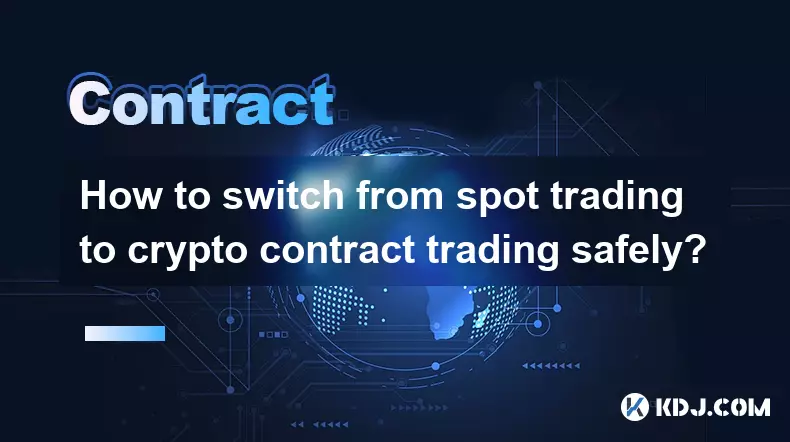-
 bitcoin
bitcoin $87959.907984 USD
1.34% -
 ethereum
ethereum $2920.497338 USD
3.04% -
 tether
tether $0.999775 USD
0.00% -
 xrp
xrp $2.237324 USD
8.12% -
 bnb
bnb $860.243768 USD
0.90% -
 solana
solana $138.089498 USD
5.43% -
 usd-coin
usd-coin $0.999807 USD
0.01% -
 tron
tron $0.272801 USD
-1.53% -
 dogecoin
dogecoin $0.150904 USD
2.96% -
 cardano
cardano $0.421635 USD
1.97% -
 hyperliquid
hyperliquid $32.152445 USD
2.23% -
 bitcoin-cash
bitcoin-cash $533.301069 USD
-1.94% -
 chainlink
chainlink $12.953417 USD
2.68% -
 unus-sed-leo
unus-sed-leo $9.535951 USD
0.73% -
 zcash
zcash $521.483386 USD
-2.87%
Ethereum smart contract tutorial
By leveraging the capabilities of Solidity, Ethereum's high-level programming language tailored for blockchain development, individuals can define the behavior and data manipulation capabilities of their smart contracts, enabling the creation of decentralized applications with custom functionality.
Nov 10, 2024 at 03:17 pm

Ethereum smart contracts are self-executing contracts with the terms of the agreement directly written into lines of code. They are stored and executed on the Ethereum blockchain, a distributed and secure computer network. This tutorial will provide a comprehensive guide to building smart contracts on the Ethereum platform, covering key concepts, best practices, and real-world examples.
Step 1: Understanding Ethereum Virtual Machine (EVM)- The Ethereum Virtual Machine (EVM) is a runtime environment that executes smart contracts on the Ethereum blockchain.
- It provides a secure and isolated platform for executing code in a decentralized manner, ensuring that contracts behave as intended.
- Understanding EVM's assembly language (EVM bytecode) is crucial for advanced smart contract development.
- Solidity is a high-level programming language specifically designed for writing smart contracts on Ethereum.
- It offers a syntax similar to JavaScript and provides a set of data types, structures, and functions tailored for blockchain development.
- Solidity contracts consist of variables, functions, and event declarations, which define the behavior and data manipulation capabilities of the contract.
- Once written, smart contracts need to be deployed on the Ethereum blockchain to become accessible and executable.
- Deployment involves submitting the contract code to an Ethereum node and paying a transaction fee to miners who include the contract in a block.
- The deployed contract will have a unique address on the blockchain, which serves as its permanent identifier.
- After deploying a smart contract, users can interact with it by sending transactions.
- Transactions are signed messages that contain a call to a specific function in the smart contract.
- Users must specify the arguments to pass to the function and the amount of gas they are willing to pay for transaction execution.
- Smart contracts can emit events to notify external applications or users about specific actions performed by the contract.
- Events are defined using the
eventkeyword and provide a way for contracts to communicate asynchronous changes or trigger actions in response to their execution. - Understanding event handling is essential for building reactive and responsive decentralized applications.
- Adhere to best practices such as using a consistent coding style, thorough testing, and code review to ensure reliability and security.
- Implement security measures such as input validation and access control to protect against malicious attacks.
- Commenting and documenting your code will enhance readability and maintainability.
- Explore advanced concepts such as inheritance, libraries, and data structures to extend the capabilities of your smart contracts.
- Understand gas optimization techniques to minimize transaction costs and improve contract performance.
- Dive into debugging and troubleshooting techniques to handle errors and ensure proper functioning of your contracts.
- Connect smart contracts to front-end web applications using platforms like Web3.js or Ethers.js.
- Implement user interfaces that allow users to interact with smart contracts, view data, and trigger transactions.
- Understand best practices for user experience and security considerations when integrating smart contracts into web applications.
Disclaimer:info@kdj.com
The information provided is not trading advice. kdj.com does not assume any responsibility for any investments made based on the information provided in this article. Cryptocurrencies are highly volatile and it is highly recommended that you invest with caution after thorough research!
If you believe that the content used on this website infringes your copyright, please contact us immediately (info@kdj.com) and we will delete it promptly.
- Bitcoin Faces Identity Crisis as Speculators Flock to Prediction Markets and Ultra-Short Options
- 2026-02-02 00:30:06
- MGK and Jelly Roll Honor Ozzy Osbourne at Pre-Grammy Gala, Sparking Fan Frenzy
- 2026-02-02 00:50:02
- Super Bowl Coin Flip: Unpacking the Prediction Power of Heads or Tails
- 2026-02-02 01:30:01
- Litecoin Price Cracks 9-Year Floor Amidst Market Breakdown: What's Next for the OG Crypto?
- 2026-02-02 01:20:02
- Crypto News, Cryptocurrency Markets, Latest Updates: A Topsy-Turvy Start to 2026
- 2026-02-02 01:15:01
- New York Minute: LivLive Presale Ignites, While Solana Navigates Choppy Waters
- 2026-02-02 01:15:01
Related knowledge

How to close a crypto contract position manually or automatically?
Feb 01,2026 at 11:19pm
Manual Position Closure Process1. Log into the trading platform where the contract is active and navigate to the 'Positions' or 'Open Orders' tab. 2. ...

How to understand the impact of Bitcoin ETFs on crypto contracts?
Feb 01,2026 at 04:19pm
Bitcoin ETFs and Market Liquidity1. Bitcoin ETFs introduce institutional capital directly into the spot market, increasing order book depth and reduci...

How to trade DeFi contracts during the current liquidity surge?
Feb 01,2026 at 07:00am
Understanding Liquidity Dynamics in DeFi Protocols1. Liquidity surges in DeFi are often triggered by coordinated capital inflows from yield farming in...

How to trade micro-cap crypto contracts with high growth potential?
Feb 01,2026 at 02:20pm
Understanding Micro-Cap Crypto Contracts1. Micro-cap crypto contracts refer to derivative instruments tied to tokens with market capitalizations under...

How to optimize your workspace for professional crypto contract trading?
Feb 01,2026 at 08:20pm
Hardware Infrastructure Requirements1. High-frequency crypto contract trading demands ultra-low latency execution. A dedicated workstation with a mini...

How to switch from spot trading to crypto contract trading safely?
Feb 01,2026 at 03:59pm
Understanding the Core Differences Between Spot and Contract Trading1. Spot trading involves the immediate exchange of cryptocurrencies for fiat or ot...

How to close a crypto contract position manually or automatically?
Feb 01,2026 at 11:19pm
Manual Position Closure Process1. Log into the trading platform where the contract is active and navigate to the 'Positions' or 'Open Orders' tab. 2. ...

How to understand the impact of Bitcoin ETFs on crypto contracts?
Feb 01,2026 at 04:19pm
Bitcoin ETFs and Market Liquidity1. Bitcoin ETFs introduce institutional capital directly into the spot market, increasing order book depth and reduci...

How to trade DeFi contracts during the current liquidity surge?
Feb 01,2026 at 07:00am
Understanding Liquidity Dynamics in DeFi Protocols1. Liquidity surges in DeFi are often triggered by coordinated capital inflows from yield farming in...

How to trade micro-cap crypto contracts with high growth potential?
Feb 01,2026 at 02:20pm
Understanding Micro-Cap Crypto Contracts1. Micro-cap crypto contracts refer to derivative instruments tied to tokens with market capitalizations under...

How to optimize your workspace for professional crypto contract trading?
Feb 01,2026 at 08:20pm
Hardware Infrastructure Requirements1. High-frequency crypto contract trading demands ultra-low latency execution. A dedicated workstation with a mini...

How to switch from spot trading to crypto contract trading safely?
Feb 01,2026 at 03:59pm
Understanding the Core Differences Between Spot and Contract Trading1. Spot trading involves the immediate exchange of cryptocurrencies for fiat or ot...
See all articles










































































